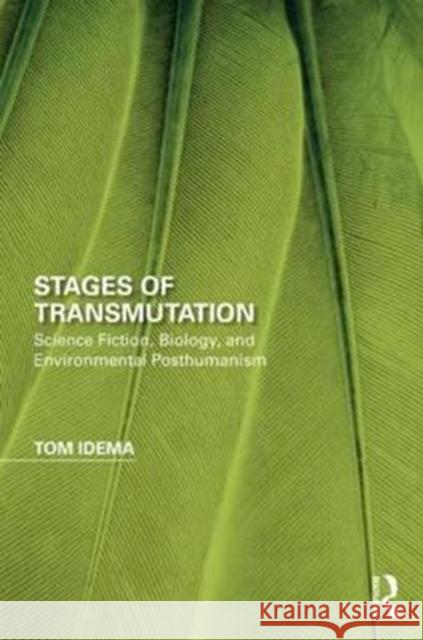Stages of Transmutation: Science Fiction, Biology, and Environmental Posthumanism » książka
Stages of Transmutation: Science Fiction, Biology, and Environmental Posthumanism
ISBN-13: 9780415788229 / Angielski / Twarda / 2018 / 176 str.
Stages of Transmutation: Science Fiction, Biology, and Environmental Posthumanism
ISBN-13: 9780415788229 / Angielski / Twarda / 2018 / 176 str.
(netto: 674,98 VAT: 5%)
Najniższa cena z 30 dni: 654,86
ok. 22 dni roboczych.
Darmowa dostawa!
Literature is often regarded as a window on the human soul. However, in an era of turbulent planetary change, perhaps this inward focus will give way to a preoccupation with the relations between humans and their nonhuman environments, thus decentering humanity. Such a perspective may be called environmental posthumanism, a term that foregrounds ecological relations and critically reassesses the dominant role of technology in debates around the posthuman condition. This book develops the concept of environmental posthumanism through analyses of acclaimed science fiction novels by Greg Bear, Octavia Butler, Philip K. Dick, and Kim Stanley Robinson, in which the human species suddenly transforms in response to new or changing environments. Narrating dramatic ecological events of human-to-nonhuman encounter, invasion, and transmutation, these novels allow the reader to understand the planet as an unstable stage for evolution and the human body as a home for bacteria and viruses. Idema argues that by drawing tension from biological theories of interaction and emergence (e.g. symbiogenesis, epigenetics), these works unsettle conventional relations among characters, technologies, story-worlds, and emplotment, refiguring the psycho-social work of the novel as always already biophysical. Problematizing a desire to compartmentalize and control life as the property of human subjects, these novels imagine life as an environmentally mediated, staged event that enlists human and nonhuman actors. Idema demonstrates how literary narratives of transmutation render biological lessons of environmental instability and ecological interdependence both meaningful and urgent -- a vital task in a time of mass extinction, hyperpollution, and climate change. This volume is an important intervention for scholars of the environmental humanities, posthumanism, literature and science, and science and technology studies.











